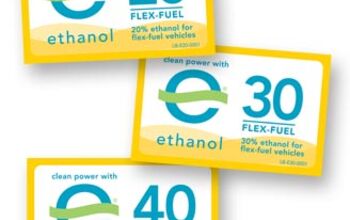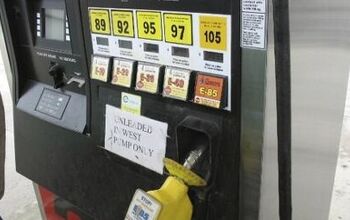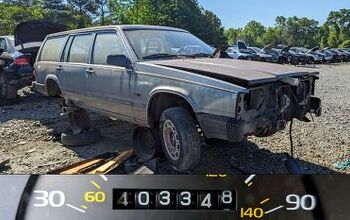E85 Boondoggle Of The Day: Saab Story
Britain's Advertising Standard Authority has called-out a Saab ad for its E85-capable, "BioPower" vehicles. The ad claims "bioethanol consumption does not significantly raise atmospheric levels of CO2." The watchdog agency also received complaints about the ad's claim that E85 reduced C02 emissions by 70 percent over normal gasoline– but dismissed them. Saab was able to prove that the assertion is factually true… if you use Brazilian sugar-ethanol. Still, it seems like Saab ad execs could have done the math and discovered that even with a best-case 70 percent reduction in C02 emissions, 30 percent of a gas-powered Saab's emissions still qualify as a "significant contribution" towards atmospheric carbon. Of course they didn't, which is why the ASA ruled that the ad is "misleading" as readers are "likely to infer that bioethanol did not add a significant amount of CO2 to the atmosphere." What a concept: requiring fairness, math skills and even-handedness of people who are just trying to save the world by selling more cars. Now if only we had a watchdog to similarly debunk the pro-E85 falsehoods spewed by America's business and political leaders. Oh wait… you're reading it.
More by Edward Niedermeyer


































Comments
Join the conversation
About EFFING time. I've been really irritated by the BioPower advertising and Saab's claims of eco-friendliness. Absolute nonsense, but "politically" expedient. Of course, they have to grasp at whatever straws they can reach for, but while E85 in Europe very rarely comes from Brazil, disproving the claim wasn't very difficult ... interesting that they got away with a best case scenario. There is no such thing as a sensible use of BioPower for powering vehicles, without a radical redesign of the same vehicles. The only way to compensate for the terrible consumed-to-gained energy equation of biofuels is to radically reduce the energy required to power the vehicle -- and they're not doing that. It's the same car, different fuel - and that doesn't compute.